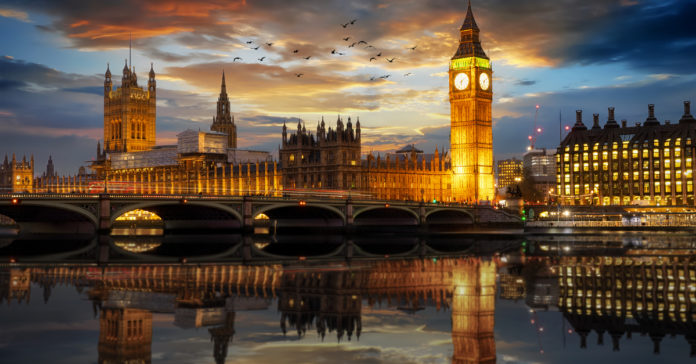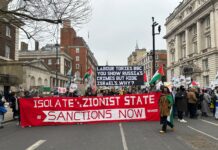A Parliamentary report has urged the government to make sure that anti-Ahmadi sentiment prevalent in Pakistan is not exported to the UK.
The report by the All Party Parliamentary Group for the Ahmadiyya Muslim Community also urged the government to pressure Pakistan to reverse its anti-Ahmadi laws.
Although Ahmadis self-identity as Muslims, mainstream Islam unanimously rejects them due to their lack of belief in Prophet Muhammad (saw) as the Final Messenger, among other reasons.
In 1974, Pakistani Prime Minister Zulfikar Ali Bhutto enacted a Constitutional Amendment specifically targeting Ahmadi Muslims, declaring them “not Muslims for purposes of law and constitution.”
But the UK Parliamentary report said: “The same organisations and preachers in Pakistan who promote anti-Ahmadi Muslim hatred, and which have their roots in the early populist movements which were relevant at the time of the formation of Pakistan (such as Majlis-e-Ahrar and Khatme Nabuwwat) have been allowed into the United Kingdom to preach…”
“In schools and universities in the UK, Ahmadi Muslims regularly experience prejudice and pressure from other Muslims students. Hate preachers with a public record of anti-Ahmadi hatred have been allowed into the UK and hate-preaching organisations in Pakistan have been allowed to set up as registered charities in the UK…
“In one example, ‘Khatme Nabuwwat’ was investigated by the Charity Commission for distributing literature through the Stockwell Green Mosque calling for the death of AhmPakistanadi Muslims if they ‘refuse to convert to mainstream Islam…’
Subscribe to our newsletter and stay updated on the latest news and updates from around the Muslim world!
“Anti-Ahmadi hatred hit a flashpoint in the UK in 2016, when Asad Shah, an Ahmadi Muslim shopkeeper was stabbed to death in Glasgow simply for being an Ahmadi Muslim. His murderer, Tanveer Ahmad, had links to anti-Ahmadi preachers in Pakistan.
“This cannot be allowed to continue unchecked and the APPG calls on the UK Government to take urgent and effective action to ensure that the overspill of hatred from Pakistan into the UK is stopped and that action is taken to press the Pakistan Government to tackle the root causes of that hatred in Pakistan.”
The report urged the British government to:
- Press the Pakistani government to repeal the anti-Ahmadi laws.
- Press the Pakistani government to return all nationalised Ahmadiyya schools and colleges to the Ahmadiyya community so that UK aid is not unnecessarily subsidising these schools.
- Take action on the Ahmadi refugee crisis and include Ahmadi refugees as part of its quota for resettling UNHCR refugees.
- Ban hate speech online.
- Ban anti-Ahmadi hate preachers from entering the UK.
And the report urged the Pakistani government to:
- Restore the voting rights of Ahmadis.
- Remove the publications ban on Ahmadi literature.
- Release three Ahmadis on death row.
- Ensure full freedom of religion for all religious communities in Pakistan.
The Chair of the All-Party Parliamentary Group (APPG) for the Ahmadiyya Muslim Community, Siobhain McDonagh MP, said: “We cannot simply let the years roll on and allow such issues to be pushed back to be dealt with at another time. This must be of pressing concern to countries like the UK that have extensive links with Pakistan, and as a friend of Pakistan surely one cannot simply ignore such brazen violation of human rights?
“It is time to say that enough is enough and that is why this report calls on the UK Government, and the wider international community to take immediate action to give Ahmadi Muslims, one of the most charitable and peaceful communities I know, their basic human rights. This needs concerted, consistent effort and one must only stop when the laws that deny Ahmadi Muslims their rights are expunged from the statute books.”
Mirza Ghulam Ahmad
The Ahmadiyya movement began in 1889 when its founder, Mirza Ghulam Ahmad, claimed to be a divine messenger.
In the 1980s Pakistan’s ruler General Zia-ul-Haq enacted Pakistan’s anti-Ahmadi laws and amended its blasphemy laws. These laws made it a criminal offence, punishable by three years imprisonment (or death under the blasphemy laws), for an Ahmadi to call themselves Muslim or practice Islam.
Ahmadis were denied the right to offer Islamic prayers, observe the month of Ramadan, call their places of worship “masjids” or practice any aspect of Islam “either directly or indirectly.”
The headquarters of the community was relocated to the UK in 1984 when its “Fourth Caliph”, Mirza Tahir Ahmad, migrated to London.
In 2016 the Muslim Council of Britain reaffirmed the mainstream Islamic position on the Ahmadiyya.
It said: “The Muslim Council of Britain reflects the clear theological position expressed across Islamic traditions: namely that the cornerstone of Islam is to believe in One God and in the finality of the Prophethood of the Messenger Muhammad, peace be upon him. We understand that this is not a tenet subscribed to by the Ahmadi community.
“The MCB Constitution requires our affiliates to declare that Messenger Muhammad peace be upon him is the Final Prophet and whoever does not subscribe to that declaration cannot be eligible for affiliation with the MCB. Given this fundamental theological difference with the Ahmadi community, the MCB is not in a position to represent or be represented by the Ahmadi community.
“Despite our clear theological beliefs, we note that pressure is mounting to describe this community as Muslim. Muslims should not be forced to class Ahmadis as Muslims if they do not wish to do so. At the same time, we call on Muslims to be sensitive, and above all, respect all people irrespective of belief or background…
“The MCB believes that all individuals and places of worship must be respected. It unequivocally condemns all forms of intimidation and violence against people of all faiths and none. The MCB condemns all attacks on all places of worship of other religions and beliefs.”






















